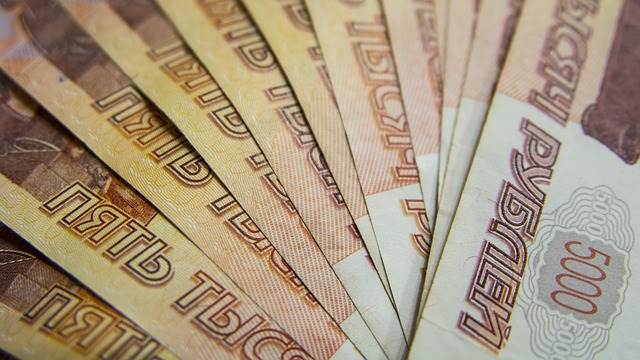Russia, the world’s largest nation, has seen its economy shift up and down and sideways, remaining staunchly viable for some time and then falling bitterly. Often the movement is in reaction to outside pressures while at other times it can be attributed to internal causes.
Only recently, analysts viewed Russia as being economically weak and some economists went so far as to suggest that Russia was struggling to repay its external debt. They predicted that the country would soon run out of foreign exchange reserves, especially following the past summer when oil prices worldwide, including Russia, reached rock bottom prices.
… the optimists are now correct in their predictions.
But other analysts believe that Russia will not run out of reserves anywhere in the near future and they point to several factors to prove that the country is not in financial difficulty.
No Shortage of Reserves
One of the reasons given by economists looking closely at the situation is that there is seems to be no shortage of reserves at the moment and the supply doesn’t seem to be running out, claiming that there are enough Russian reserves to cover 14 months of import.
The second reason given is the floating ruble. While oil exporters tend to have their costs in rubles, they keep their revenues in dollar and are thus protected from the lower oil prices. According to the Central Bank of Russia, Russia had an almost $50bn current account surplus in the first half of this year and the balance of payment remains robust.
As far as inflation fears, analysts believe that growth has already leveled off and that inflation will drop during the next few quarters.
But there are other fundamentals that are helping to bolster the Russian market. Corporate earnings have been generally steady and exporters, which make up the greater part of the market, have been somewhat shielded from the recession through the ruble weakening which was put into place in 2014 response to the 40 percent market correction.
In addition, sanctions imposed by global powers for Russia’s annexation of Crimea and its role in the pro-Russian uprising in Ukraine which resulted in a 50 percent drop in oil prices since June 2014, are now being reviewed and may well be lifted.
However, equity markets have most definitely been effected by the oil price volatility as well as by the new exchange rate regime in Russia. Growth contracted 4.9 percent year on year in the second quarter and although economists had expected an even greater contraction, the country was forced to re-price Russian assets. Although short-term economic growth and stock market performance is weak, analysts see longer-term growth as slowly boosting corporate earnings.
The Worst is Over
Journalists will now have to admit that the optimists are correct in their predictions. Alexey Kornya, the chief financial officer of Russian telecoms giant MTS, the country's leading telecoms business told reporters today that Russia's weakened ruble and high inflation could be coming to an end and that “the worst has already passed." And despite inflation which remains high at 15.8 percent as of August and the ruble which continues to be weak against the dollar, trading at 65.6 to the greenback Monday, Kornya sees the recession fading away and life returning to some sort of normalcy.
Vladimir Osakovskiy, the Bank of America’s leading economist in Moscow agrees with this assessment and said that the slowdown in investment in Russia is calming, while corporate profits have been growing, an indication that the recession in Russia is likely to have hit bottom when GDP fell by 4.6 percent in the second quarter.
And to the surprise of many, global analysts are seeing many of Russia’s major oil companies among the winners in global production and their success can be largely attributable to a still-weak ruble and a favorable tax regime that reduces the overall tax burden when oil prices fall.
Russian Oil Companies Outdo Others
Ranked according to cash flow, profit margins, and share prices, Russian giants Rosneft and Lukoil as well as smaller producers like Gazprom Neft and Bashneft have been outperforming Royal Dutch Shell, BP, and Exxon Mobil. Rosneft cites a production cost per barrel nearly five-fold less than what U.S. E&Ps are paying.  ÅQ
ÅQ
In Moscow trading, shares of Bashneft, Gazprom Neft, Lukoil, and Rosneft have risen a combined average of nearly 16 percent on the year. Though their growth is more restrained on the London market, they have continued to grow while Shell and BP have dropped 27 percent and 17 percent respectively.
While the aforementioned numbers may suggest a healthy outlook, there is no doubt but that Russian oil revenues are down across the board from a year ago and this is not helping the country to move up as quickly as the government expects. Although oil production has proven quite robust thus far and is expected to continue to do well in the medium-term ( barring any drop below $40 a barrel) Russia is disappointed that its Arctic and near Arctic reserves have not done better.
